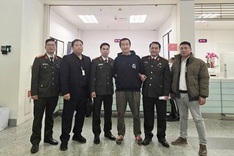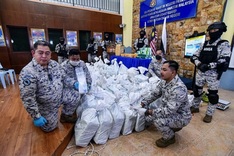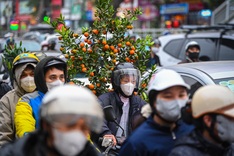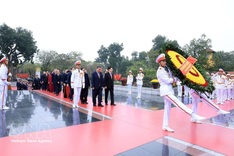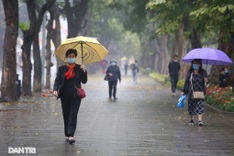The Chinese trawlerman whose arrest sparked a major row arrived home on Saturday after being released by Japanese prosecutors as Beijing called for compensation and an apology for the "unlawful" detention.
In a far from conciliatory statement, China\'s foreign ministry insisted the disputed islands at the centre of the diplomatic standoff were Beijing\'s "inherent territory", according to a report by the state-run Xinhua news agency.
"(The arrest) seriously infringed upon China\'s territorial sovereignty and violated the human rights of Chinese citizens," the statement said.
"Japan\'s detention, investigation or any form of judiciary measures for the Chinese trawler and fishermen are unlawful and invalid," the report said, adding: "The Japanese side must make apology and compensation for the incident."
Japanese prosecutors on Friday cited the deepening rift between Beijing and Tokyo in their decision to release the captain, who was arrested after his boat collided with two Japanese coastguard vessels in the East China Sea.
"Considering the impact on Japan\'s people and the Japan-China relationship, we decided it would not be worth continuing detaining and investigating the captain," said Naha district deputy chief prosecutor Toru Suzuki.
The Chinese captain, Zhan Qixiong, 41, had acted on the spur of the moment and not committed a premeditated criminal act, and he had no prior criminal record in Japan, said Suzuki in a televised press conference.
Xinhua, citing the foreign ministry said Zhan had flown out of Japan\'s southern Okinawa island prefecture early on Saturday.
In a separate report several hours later, it said he had arrived in southeast Fujian province.
The top spokesman for Japan\'s centre-left Prime Minister Naoto Kan, who was at the UN General Assembly in New York, said the decision was taken by prosecutors alone, and not because of political pressure.
But the conservative opposition was quick to lash out at what it saw as a loss of face for Japan, which has this year been overtaken by traditional rival China as the world\'s number two economy.
"It was an extremely foolish decision," said hawkish former prime minister Shinzo Abe of the Liberal Democratic Party, Jiji Press reported.
"It was clear as day that it was an intrusion into (Japan\'s) territorial waters. Japanese politics caved in to pressure from China."
Reaction in Washington was more positive, with State Department spokesman Philip Crowley welcoming the move as "the right decision".
"We are gratified that the situation has been resolved," he said, adding the United States believed the release "will significantly reduce tension" in the region.
The row started when Japan\'s coastguard arrested the captain on September 8 after his trawler collided with two of their patrol boats near a disputed island chain, called Senkaku by Japan and Diaoyu by China.
The collisions caused no injuries, but the diplomatic damage was severe.
In the ensuing row, China issued a series of harsh diplomatic protests, summoned Japan\'s ambassador Uichiro Niwa six times, once after midnight, and cancelled official visits, energy talks and joint cultural events.
Japan on September 13 released the ship\'s 14 Chinese crew and allowed them to fly home on a Chinese government-chartered plane, but on the same day Beijing protested over the skipper\'s continued detention.
Chinese Premier Wen Jiabao this week threatened "further actions" and warned on Thursday: "China will never give in or compromise on matters including national sovereignty, unity and territorial integrity."
Amid the row, traders said China has also blocked exports of rare earth metals, used in products from iPods to electric cars, to Japan -- a claim Beijing has denied.
Further ramping up tensions, China this week detained four Japanese nationals who were working on a bid for a project to clear up chemical weapons left from the Japanese occupation before and during World War II.
Japan has pressed for diplomatic access to its four, who were detained in northern Hebei province for entering a restricted military zone and "illegally filming defence targets", according to China\'s Xinhua news agency.
Their employer, construction company Fujita, said they had been visiting the city of Shijiazhuang but had been out of contact since one of their staff had text-messaged the single word "help" on Tuesday.
Memories of the two nations\' troubled past has fuelled the row.
Last weekend, on the anniversary of Japan\'s 1931 invasion of Manchuria, small groups of anti-Japanese demonstrators rallied in three Chinese cities, although the protests were brief and peaceful.
Chinese skipper home from Japan as Beijing demands apology
The Chinese trawlerman whose arrest sparked a major row arrived home on Saturday as Beijing called for compensation and an apology for the "unlawful" detention.
Source: AFP








